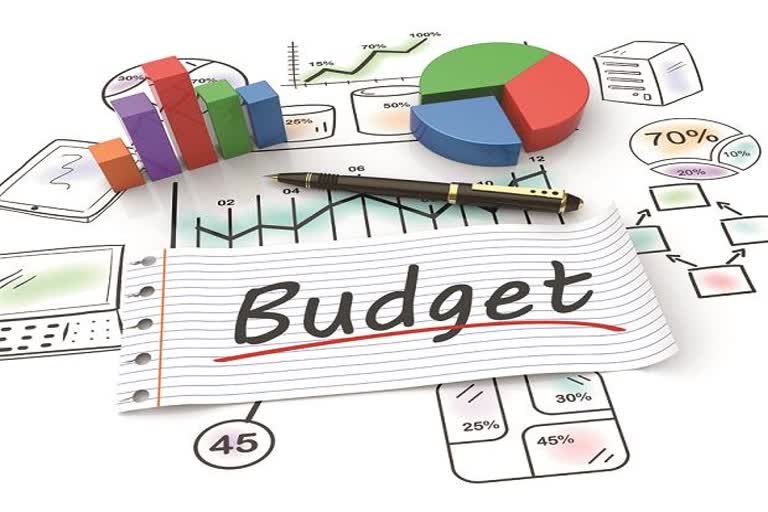New Delhi: It is bad news for North Block ahead of the Budget as the spiral effect of the killing of Iran's top general by the US will be echoed in India's Finance Ministry and central bank at a time when the economy is struggling to come out of a slowdown and to push consumption and demand from inertia and dimming any possibility for RBI to keep inflation under control to enable it to consider further lowering interest rates and support growth.
India which imports nearly 90 per cent of its oil is also slated to see its import bill ballooning putting pressure on current account deficit and in turn putting pressure on the rupee also.
Market benchmark Sensex tumbled 162 points on Friday as global investors turned risk-averse after the killing of a top Iranian general by the US fuelled fears of a geopolitical conflict. Brent crude futures surged 4.4 per cent to USD 69.16 per barrel as investors turned jittery on supply concerns. The 30-share BSE index ended 162.03 points, or 0.39 per cent, lower at 41,464.61. Similarly, the broader NSE Nifty closed 55.55 points, or 0.45 per cent, down at 12,226.65.
Indian rupee (INR) fell sharply at 4 per cent against the US dollar (USD), spooked by a surge in global oil prices to 71.77 at day's low against the US dollar.
The Finance Ministry did not comment on the developments.
India's current account deficit had narrowed in the September quarter of the fiscal year as the trade deficit shrank, central bank data showed earlier. The CAD had declined to 0.9 per cent of GDP in Q2 fiscal year ending March 2020 from 2.9 per cent in the same period a year ago on lower trade deficit. CAD occurs when the value of goods and services a country imports exceeds the value of exports. A large CAD can cause the domestic currency to depreciate.
The most prominent fallout petrol, diesel prices likely to rise sharply on Iran-US tensions. As per revised prices, petrol rates stand at Rs 75.35 per litre in Delhi, Rs 80.94 per litre in Mumbai, Rs 77.94 per litre in Kolkata, and Rs 78.28 per litre in Chennai, respectively.
Read more:Oil price jumps on fear of Iranian retaliation against US
Petrol and diesel prices were hiked marginally for the second successive day on Friday following a surge in crude oil rates. While, price of petrol was raised by up to 10 paise per litre, the price of diesel increased by up to 15 paise per litre, according to the website of IOC.
Since domestic fuel prices are directly dependent on international crude oil prices, petrol and diesel prices are likely to jump sharply in the next few days over increasing tensions in the oil-rich Middle East countries.
Brent crude oil price rose over 4 per cent on Friday after US airstrikes killed a top Iranian commander in Iraq, heightening geopolitical tensions. Brent crude oil price rose up to $69.16 per barrel marking a spike of 4.39 per cent its highest level since September against the previous close of $66.25 per barrel.
Following the killing of the Iranian commander, oil prices surged, showing concerns that escalating Middle East tensions may disrupt oil supplies and as a result Brent crude futures jumped to their highest since September 17.
Analysts said oil is likely to be on hot furnace and this augurs bad for large oil-importing countries like India, with large trade and current account deficit like India. Oil marketing companies consider other factors such as rupee to US dollar exchange rate, global cues and demand for fuel in deciding the price of petrol and diesel.
The Reserve Bank on Thursday had announced another simultaneous purchase and sale of government bonds, the third such operation in recent weeks, moves seen as an attempt to bring longer-term yields lower. The yield on G-Sec is going to go in view of the impact on the domestic economy on the geo-political tensions and also a direct bearing on inflation.
This will also leave the much-awaited consumption revival to happen anytime soon as disposable income at the hands of the people further shrinks.
In its December Monetary Policy meeting, RBI kept the repo rate unchanged at 5.15 per cent. This halt came after five consecutive cuts. RBI put rising inflation in the near-term as one of the reasons for keeping rates fixed. The apex bank had said it would be prudent to carefully monitor incoming data to gain clarity on the inflation outlook.
If the Iran-US crisis leads to oil supply crisis, and petrol prices after a while start rising in India then the inflationary pressure would aggravate. Retail inflation has already shot up to over 3-year high of 5.54 per cent in November breaching the Reserve Bank's medium-term target of 4 per cent, justifying the central bank's decision to keep the benchmark interest rate unchanged in its monetary policy earlier this month.



